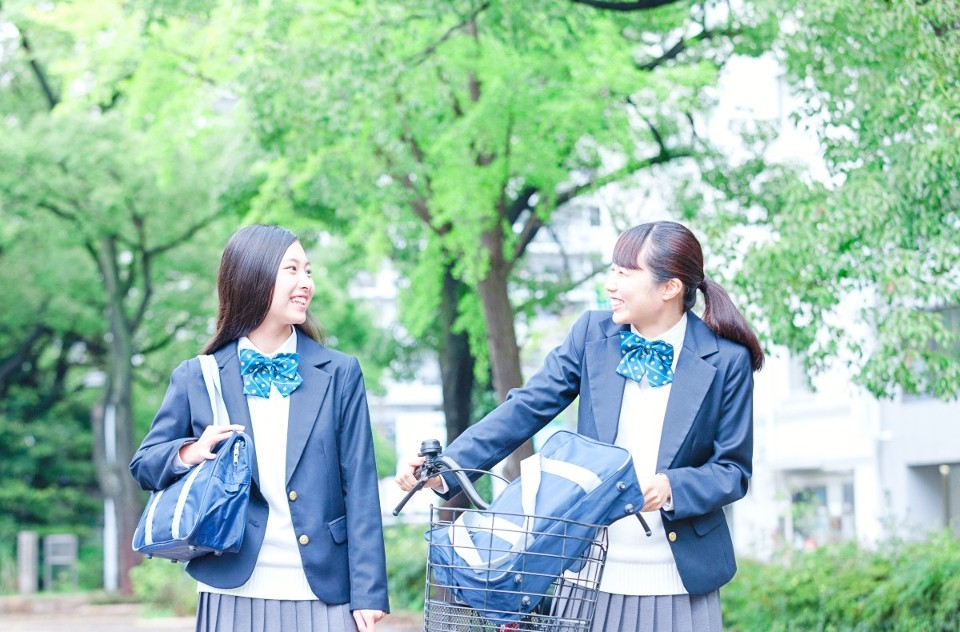
The Japanese word "Konbanwa" is a common greeting used from evening to nighttime. However, the exact time it’s used can vary depending on factors like sunset times, location, and individual habits. In some workplaces, it might not even be used at all. This article explores the meaning, typical usage, timing, responses, and example conversations involving "Konbanwa." Use this as a handy reference when speaking Japanese.
What Does "Konbanwa" Mean?

In Japanese, "Konbanwa" is a greeting used in the evening or at night when meeting someone you know. The general timeframe for this greeting is from sunset until bedtime or before sunrise. Since sunset times vary by location, the timing of its use differs depending on the area. However, it’s typically used from around 5:00 or 6:00 PM onward.
1. Meeting Neighbors or Acquaintances at Night
One common situation where "Konbanwa" is used is when greeting neighbors or acquaintances at night. It’s customary to give a slight bow while saying this greeting. During the day, you might engage in small talk, but at night, people often limit their interaction to just the greeting to avoid disturbing the neighborhood with conversation. Similar to "Konnichiwa," "Konbanwa" can feel somewhat formal, so it’s rarely used with very close friends or family members.
2. Visiting a Friend’s or Relative’s House at Night
"Konbanwa" is also used when visiting a friend’s or relative’s home in the evening. While you might not use "Konbanwa" with close friends or relatives of the same age, it’s commonly used when greeting older individuals such as a friend’s family members or an uncle or aunt. In many cases, you might follow "Konbanwa" with an additional phrase based on the situation. For example, if invited for dinner, you could say, "Konbanwa. Thank you for having me over." Or if you feel apologetic about visiting at night, you might say, "Konbanwa. I’m sorry for disturbing you at this hour." It’s also common to mention the weather, such as, "It’s colder than usual today, isn’t it?"
What’s the Difference Between "Konnichiwa" and "Konbanwa"?

Generally, "Konnichiwa" is used from around 10:00 or 11:00 AM until sunset, while "Konbanwa" is used after sunset, typically starting from around 5:00 or 6:00 PM until bedtime or before sunrise. However, the timeframe for "Konbanwa" varies depending on location, season, and personal habits. Because Japan stretches over a long north-south axis, sunrise and sunset times differ across the country. Seasonal changes also affect these times; in summer, for instance, sunset occurs later, so fewer people might use "Konbanwa" around 5:00 PM when it’s still bright outside. When deciding on your greeting, it’s helpful to follow the general time guidelines, but it’s even better to match the greeting the other person uses. This approach ensures smoother communication.
How to Write "Konbanwa" in Hiragana
In Japanese, "Konbanwa" is written in hiragana as "こんばんは (Konbanwa)." While the final character "は" is pronounced as "ha" in isolation, in this context, it is pronounced as "wa." Beginners often mistakenly write it as "こんばんわ." Even some native speakers deliberately write it this way for stylistic reasons, but if you want to stick to the correct hiragana spelling, it should be written as "こんばんは."
How to Write "Konbanwa" in Kanji
When written in kanji, "Konbanwa" appears as "今晩は." While kanji is often used in the original context of the phrase, it’s more common to write it in hiragana when using it as a greeting.
How to Respond to "Konbanwa"

When someone greets you with "Konbanwa," the usual response is to reply with "Konbanwa." However, if the greeting comes from a superior or someone older, simply replying with "Konbanwa" might come across as impolite. In such cases, adding a phrase to show respect or acknowledgment can leave a better impression.
| Japanese | Romaji | Meaning |
| こんばんは、お疲れ様です | Konbanwa Otsukaresamadesu | A phrase to express appreciation for the other person’s efforts. |
| こんばんは、今日は暑かったですね | Konbanwa Kyouwa Atsukattadesune | Used on a hot day to comment on the weather. |
| こんばんは、先日はありがとうございました | Konbanwa Senjitsuwa Arigatougozaimashita | A way to express thanks for a previous occasion. |
| こんばんは、こちらこそいつもお世話になっております | Konbanwa Kochirakoso Itsumo Osewani Natteorimasu | Acknowledging the other person’s support and expressing gratitude. |
Other Ways to Say "Konbanwa"

There aren’t many direct alternatives to "Konbanwa." However, adding a phrase after "Konbanwa" can make it more polite or serve as a conversation starter. For example:
| Japanese | Romaji | Meaning |
| こんばんは、今お帰りですか? | Konbanwa, Ima okaeri desuka? | A phrase to greet someone on their way home. |
| こんばんは、これからお出かけですか? | Konbanwa, Kore kara odekake desuka? | A phrase to greet someone who looks like they’re heading out. |
| こんばんは、雨が降りそうですね | Konbanwa, Ame ga furisou desune | A phrase to comment on the possibility of rain. |
Evening and Night Greetings Other Than "Konbanwa"

"Konbanwa" has a slightly formal tone, so it’s not commonly used among colleagues or close friends you see regularly. In these situations, more casual or context-specific greetings are often used.
Workplace Greetings in the Evening or at Night
お疲れ様です / Otsukare sama desu
A commonly used phrase among colleagues, seniors, or subordinates at work.
ご苦労様 / Gokurou sama
Used in workplaces, this phrase is typically spoken by superiors to subordinates or seniors to juniors. However, using it towards someone of higher rank is considered rude.
お世話になっております / Osewa ni natte orimasu
Frequently used when greeting business partners or people outside the workplace.
Greetings for Friends or Close Colleagues
お疲れさま / Otsukare sama
A casual variation of "Otsukare sama desu," often used with friends or familiar colleagues. It can replace morning or daytime greetings depending on the time.
どうも / Doumo
A more relaxed expression than "Konbanwa," often used with friends, close colleagues, or neighbors.
おはよー / Ohayo
Among friends, "Ohayo," typically a morning greeting, is often used casually regardless of the time of day.
Dialects of "Konbanwa"
There aren’t many dialectal variations of "Konbanwa," but it is often replaced by phrases like "Konbanwa" and "Oban desu" depending on the region.
Regions Where "Konbanwa" Is Commonly Used
"Konbanwa" is widely used in metropolitan areas such as Tokyo, Kanagawa, Chiba, and Saitama, as well as in the Hokuriku, Chubu, Kansai, and Shikoku regions.
Regions Where "Oban desu" Is Commonly Used
"Oban desu" is prevalent in Hokkaido, Iwate, Akita, Miyagi, Fukushima, Ibaraki, Tochigi, Gunma, and Niigata.
Other Regional Variations
- Yamanashi: おつかれなって / Otsukare natte
- Aichi, Kyoto, Shiga: おしまいやす / Oshimai yasu
- Hyogo: ばんになりました / Ban ni nari mashita
- Kumamoto: もーしまいなったか / Mo shimai nattaka
Sample Conversations Using "Konbanwa"
We’ve covered various aspects of "Konbanwa." Now, here are a few simple phrases and dialogues that show how to use "Konbanwa" in real-life situations. Try them out during your trip to Japan!
(1) Returning to Your Hotel
A: こんばんは (Konbanwa)
B: おかえりなさいませ (Okaeri Nasaimase)
A: 鍵をお願いします (Kagi wo Onegaishimasu)
B: かしこまりました (Kashikomarimashita)
(2) Asking About Restaurant Hours
A: こんばんは (Konbanwa)
B: いらっしゃいませ (Irasshaimase)
A: 何時まで食事ができますか? (Nanji made Shokuji ga Dekimasu ka?)
B: 夜10時までです (Yoru Juji made desu)
(3) Visiting a Friend’s House
A: こんばんは (Konbanwa)
B: お招きありがとうございます (Omaneki Arigatou Gozaimasu)
A: いえいえ、どうぞお入りください (Ieie, Douzo Ohairi Kudasai)




Comments